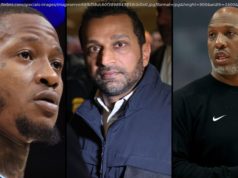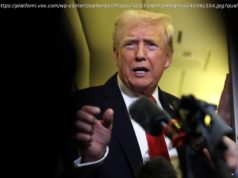Maybe the Russians shouldn’ t have gone to Jared.
Jared Kushner really wants everyone to believe that he did nothing wrong.
Donald Trump’s son-in-law and top aide released a public statement about the Russia scandal on Monday morning, a preview of what he’s going to say in closed-door congressional testimony this week .
“I did not collude, nor know of anyone else in the campaign who colluded, with any foreign government. I had no improper contacts. I have not relied on Russian funds to finance my business activities in the private sector. I have tried to be fully transparent, ” Kushner writes. “Hopefully, this puts these matters to rest.”
But a close read of the letter suggests that it does not, in fact, put these matters to rest. By Kushner’s own account, he met with Russian nationals four times during the presidential campaign and transition. His descriptions of these meetings are incomplete, full of unconfirmed details, and at times directly contradictory of other sources’ accounts of the same events.
The statement is carefully constructed; the whole thing reads like it was put together by a very talented legal team. But shady behavior is still shady no matter how good the lawyers — and even Kushner’s very precise defense of his actions raises big new questions for the Trump-Russia scandal. What follows are three of the biggest issues it brings up.
On December 1,2016, Kushner met with then-Russian Ambassador Sergey Kislyak. Trump’s now-disgraced National Security Adviser Michael Flynn was also present at the meeting.
At this meeting, the Washington Post reported back in May, Kushner had asked Kislyak if it would be possible to set up a secure communications line between the Trump camp and Russia inside the Russian Embassy in Washington. The Post reported that this was “an apparent move to shield their pre-inauguration discussions from monitoring, according to US officials briefed on intelligence reports.”
In his statement on Monday, Kushner confirms that this meeting took place. He also confirms that he asked Kislyak about communicating through a secure line at the embassy. But he says it was a one-time proposal for receiving information about the Syrian conflict during the transition and denies that there was any effort to hide communications between the Trump camp and Russia from US snooping:
To be clear, experts believe even this limited proposal was a bad idea. Anyone familiar with spying knows that sending a US citizen into a secure Russian communications facility would be rejected by both US and Russian intelligence as too risky. Kushner’s defense, in essence, is ignorance: He briefly proposed a really bad idea, it was shot down by Kislyak, and that was the end of it.
But this is a very different account of the meeting than what appeared in the Post. A number of US intelligence officials, according to the Post, seemed to believe the effort was a far more ambitious attempt to hide the Trump team’s communications from the US’s own spies. This would be incredibly nefarious: It would suggest that there was some information Kushner wanted to share with the Russians (or vice versa) but did not want anyone in the US government, let alone the American public, to know about.
There are only three possible options: The Post’s report is wrong, American spies misread the meeting, or Kushner is lying.
This isn’ t an unresolvable conflict. According to the Post, US intelligence officials based their assessment on an intercept of a phone call between Kislyak and his superiors at the Kremlin, wherein he recounted his version of the meeting.
“Kislyak reportedly was taken aback by the suggestion of allowing an American to use Russian communications gear at its embassy or consulate, ” the Post’s Ellen Nakashima, Adam Entous, and Greg Miller write . “Officials said that it’s unclear what Kislyak would have had to gain by falsely characterizing his contacts with Kushner to Moscow.”
So far from clearing things up, Kushner’s letter has now raised a series of new questions: Why does his account of the meeting differ so sharply from what the intercept of Kislyak’s call seemed to suggest? What did Kislyak actually tell the Russian government about the call? And how does Flynn, who has offered to testify in exchange for immunity for prosecution, recall the meeting?
After the December 1 meeting, Kislyak and Kushner stayed in touch. According to Kushner, he turned down multiple requests to meet with Kislyak again, once even arranging a meeting between Kislyak and his assistant to avoid having to sit down again (which seems odd, given Kislyak’s stature) .
The ambassador repeatedly insisted that Kushner meet with a man named Sergey Gorkov, the head of the state-connected Russian bank Vnesheconombank (VEB) . Gorkov is known to be close to Russian President Vladimir Putin and graduated from the Russian FSB’s spy academy; his bank had been directly targeted by sanctions imposed by the Obama administration after the 2014 Russian invasion of Ukraine. Yet Kushner decided to have a sit-down with Gorkov at the Russian government’s urging.
“I agreed to meet Mr. Gorkov because the Ambassador has been so insistent, said he had a direct relationship with the President [Putin] , and because Mr. Gorkov was only in New York for a couple days, ” Kushner says.
This meeting has been public knowledge since March. But the details in Kushner’s statement raise new questions about the nature of the meeting itself.
In a statement, Gorkov said the meeting was part of a broader strategy of sitting down with “business circles of the US, including with the head of Kushner Companies, Jared Kushner.” This would suggest that the meeting was about potentially doing business together — which would raise serious conflict of interest questions given Kushner’s role doing policy work for his father-in-law. If they chatted about potentially providing loans to VEB, as my colleague Alexia Fernández Campbell explains, Kushner could face 20 years in prison under US sanctions law.
Kushner flatly denies all of this.
“At no time was there any discussion about my companies, business transactions, real estate projects, loans, banking arrangements or any private business of any kind. At the end of the short meeting, we thanked each other and I went on to other meetings, ” he writes in his statement.
Instead, he says, Gorkov gave him some gifts, “told me a little about his bank and made some statements about the Russian economy, ” and “said that he was friendly with President Putin, expressed disappointment with U. S.-Russia relations under President Obama and hopes for a better relationship in the future.”
That sounds extremely boring. So why would Kislyak, the Russian ambassador, badger Kushner — for days, Kushner’s account suggests — to take such a boring meeting? And why does the Putin-linked banker in question have an account of the meeting’s agenda that’s different from Kushner’s? And what “statements about the Russian economy” did Gorkov allegedly make, exactly? Did they suggest investment opportunities for the Kushner Companies, perhaps loans?
Again, Kushner’s statement doesn’ t really resolve anything — instead, it raises a host of significant new questions about his links to the Kremlin.
These two meetings, with Kislyak and Gorkov, took place during the transition. But there’s another key meeting that Kushner took, this time during the campaign: Donald Trump Jr.’s now-infamous June 2016 meeting with a Russian lawyer to try to get dirt on Hillary Clinton.
Kushner’s defense of attending the meeting is that he had no clue what it was really about.
He claims not to have read to the bottom of the email chain in which it was written that the meeting was “part of Russia and its government’s support for Mr. Trump.” He claims to have been “a little late” to the meeting, and that when he arrived they were talking about “the issue of a ban on U.
Домой
United States
USA — Criminal Jared Kushner’s Russia defense raises more questions than it answers






